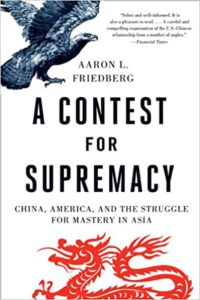WHILE the Brics countries (Brazil, Russia, India, China and South Africa) in the recently held 15th Brics leaders’ summit were preoccupied with discussions on how developing countries can coordinate to identify business opportunities, economic complementarities and areas of cooperation and partnership for mutually accelerated growth, sustainable development and inclusive multilateralism, the United States is fixated in orchestrating the formation of another “bloc” that targets its usual perceived nemesis and archrivals — China, Russia and North Korea.
On August 18, US President Joe Biden hosted South Korean President Yoon Suk Yeol and Japanese Prime Minister Fumio Kishida at Camp David and succeeded in bringing together South Korea and Japan into a trilateral defense, security and military alliance.
The three leaders professed that their Camp David meeting was the beginning of a “new era of trilateral partnership,” pledging commitment to consult each other during crises and coordinating a joint response to counter regional challenges, especially on North Korea’s military activities, the volatile situation of the Taiwan Strait and the disputed waters of the South China Sea. The three countries agreed to hold more yearly military exercises. The South Korean president said: “Any provocation or attack on any one of our three countries will trigger the decision-making process of this trilateral framework, and our unity will grow stronger and more determined.” However, the three countries did not sign a defense pact of a long-term trilateral agreement.
Implications
Just like QUAD — the Quadrilateral Security Dialogue of the US, Japan, Australia and India — and Aukus — the alliance of the US, the United Kingdom and Australia — this newly formed defense and military triad of the US, Japan and South Korea is another militaristic approach to foreign relations, a Cold War tactic and a narrower security-centric effort of the US alongside its military allies to preserve US hegemony and dominance in the Asia-Pacific region, and an attempt to contain, counter, isolate and single out Russia, North Korea and China.
This new trilateral alliance could potentially exacerbate regional tensions, fomenting divisions and even confrontation among Asian countries. China, Russia and North Korea may respond by commencing countermeasures initiatives that will further escalate the tension in the region. This triad may also potentially provoke an arms race and risk an armed conflict, endangering the peace and stability of the Asia-Pacific region.
In the area of diplomacy, the creation of the new trilateral alliance between Japan, the US and South Korea may hinder diplomatic efforts to engage Russia concerning the ongoing Russia-Ukraine war and North Korea concerning its increasing missile and nuclear capability building, which is gaining momentum and getting stronger each passing day. Also, China may perceive such a trilateral pact as an attempt to contain its influence and challenge its regional aspirations. In addition, North Korea may also perceive the trilateral pact as a threat, potentially escalating tensions or increasing belligerence. These scenarios may lead to a cessation of negotiations and diplomacy, which are important for addressing regional and global governance issues. Also, these scenarios could lead to increased tensions between the pact members and China, affecting economic, diplomatic and security relations among the parties involved and adversely impacting regional countries.
Furthermore, the creation of this new trilateral defense pact may also further accelerate and aggravate the growing major rivalry, competition and division between China and the US in the region in the area of security, defense and military affairs, further intensifying the already polarized global power dynamics and world order, creating mutually exclusive power blocs with alliances. Such polarization may not only hinder cooperation on global challenges that require collective action, such as climate change, global food insecurity problems or pandemics, but may also steer the dawn of Cold War version 2.0, escalating great power competition and rivalry.
Taking all these as a whole, creating a trilateral security, defense and military alliance between the US, Japan and South Korea may result in unpredictable outcomes that could destabilize the region, inadvertently provoke conflicts or create new security threats.
Parallelism
Moreover, analogous to the Ukraine crisis, which is fundamentally a proxy war between Russia and the West led by the US, the new trilateral alliance involving two Asian countries — Japan and South Korea — in a pact with the US may lead to supporting various factions and exacerbate existing regional conflicts and disputes, such as those between North Korea, South Korea and Japan, between China and Taiwan in the Taiwan Strait, disputes in the East China Sea and South China Sea, leading to more assertive actions by involved parties, reflecting the tensions seen in the ongoing Ukraine-Russia war.
In the same manner that the Ukraine-Russia war is an outcome of the underlying geopolitical competition between Russia and the US and its NATO (North Atlantic Treaty Organization) allies, similarly, this new trilateral alliance between Japan, the US and South Korea could be perceived as a challenge by other powers in the region, such as China, Russia and even by North Korea, leading to increased geopolitical tension and great power rivalry and competition that may lead to Ukraine crisis version 2.0 in Asia.
Conclusion
Indeed, the peace and security of the region are facing a severe threat from the US-orchestrated and -sponsored bloc confrontation and Cold War ploy. Suppose this bloc confrontation is left unchecked and unopposed. In that case, the world will fall into cliques pitted against each other, which may lead to a full-blown military conflict akin to the ongoing Ukraine-Russia war or another world war.
Hence, regional countries must broker a stable power balance through multilateralism and bilateralism. There should be a consolidated and united effort to do away with unilateralism and the creation of narrow-centric “cliques or “groupings” to single out certain countries. Instead, regional countries should be working to promote peace, stability and prosperity in Asia and the world. Asia-Pacific countries should emphasize common interests, strike a middle ground amid conflicting interests, seek greater value in win-win cooperation and broaden engagement in maritime affairs, regional connectivity, disaster management, climate change, trade and health, pandemic response, economic cooperation and achieving the United Nations’ sustainable development goals, rallying a foundation of a more secure, stable and peaceful Asia/Indo-Pacific regional construct beyond the realm of great power rivalries in the region between the US and its allies, and China and its friends.
Asians and regional countries, in particular, must remember that peace plays a crucial role in the rise of Asia. Peace practically means internal stability within Asian countries and peaceful relations between Asian nations and the rest of the world. Regional countries must be mindful that peaceful development and the rise of Asia are the themes of the times. They must be cognizant that peace is an essential precondition to economic progress and development and the rise of Asia. Without peace in the region and beyond, the Asian Century and economic progress will not be possible.
In retrospect, peace is a fundamental prerequisite for Asia’s sustainable and positive national and international rise. Without peace, the region could face disruptions, conflicts and setbacks that hinder economic development, social progress and global collaboration.
Source: The Manila Times
https://www.manilatimes.net/2023/09/02/opinion/columns/us-japan-sokor-trilateral-defense-pact-and-the-specter-of-cold-war-20-bloc-confrontation/1908167


